Recently, Russian commodity stores have sprung up all over the country. Chengdu is no exception.
Chunxi Road, Jianshe Road, Xipu, Longquanyi… Search on the map, Chengdu has opened a number of Russian commodity pavilions and Russian national pavilions. Under the banner of “combatant nation”, “hard-core Russian products”, “Russian selection”, “clean ingredients and very affordable prices”, these product stores have attracted a large number of consumers.
So, do these products really come from Russia? What do dealers say? What do people in the industry think about this? The reporter conducted a visit and investigation.
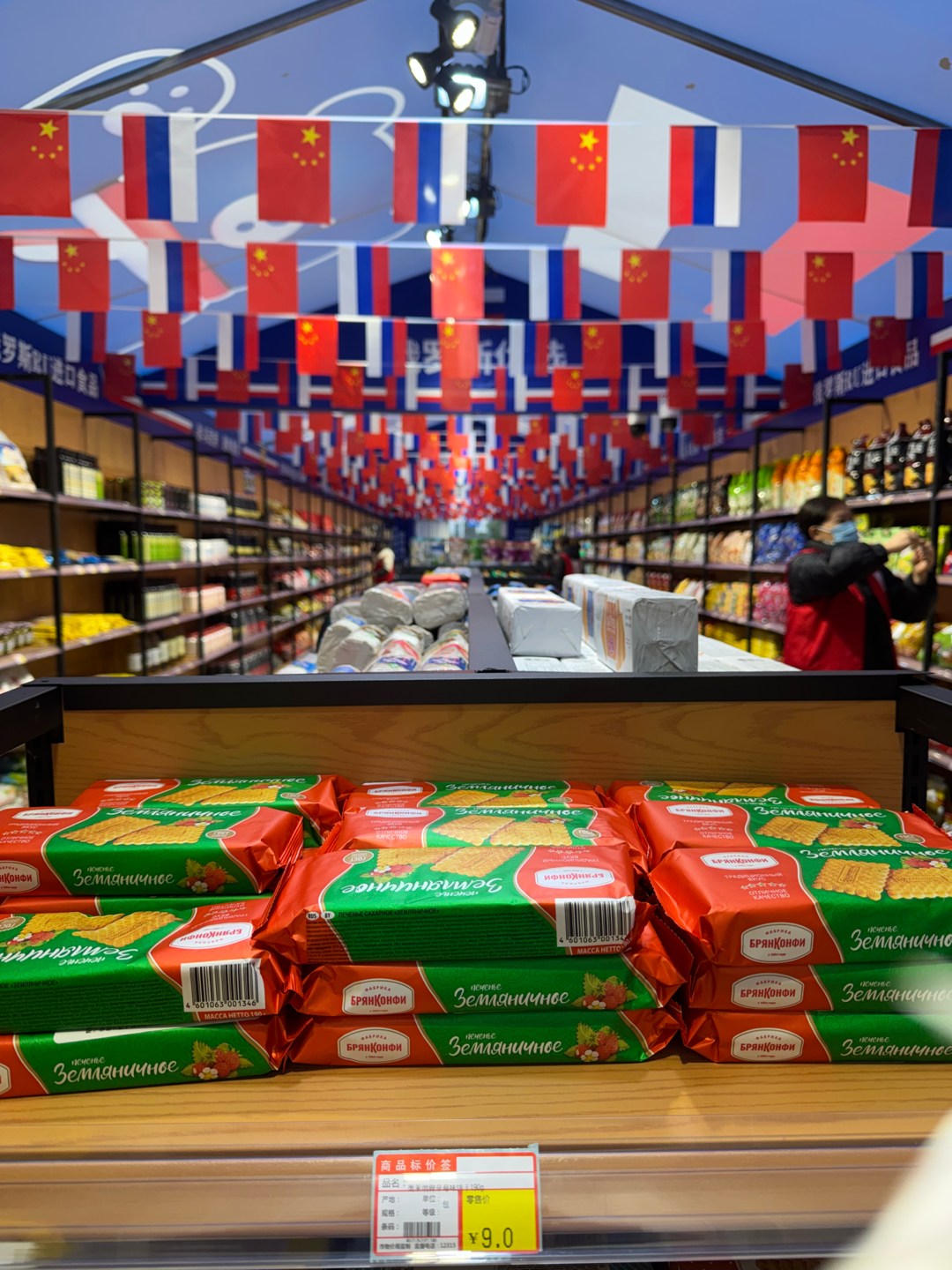
Inside the Russian merchandise store
On-site visit:
The store is filled with Chinese and Russian flags
The reporter walked into a Russian commodity store and found that the store was densely packed with Chinese and Russian flags. On the shelves, there are various products. There are honey, soy sauce, macaroni, biscuits, fruit oatmeal, coffee, milk powder, Russian-style pure pork sausage, beef tendon sausage, etc.
The labels of these products usually have Russian characters, and their product names also have a Russian flavor. For example, the brand name of a soy sauce is “Eluoduo brand”, the brand name of a honey is “Amiaoxin brand”, and the brand name of a milk powder is “Rubtsov”.
It is worth noting that at present, the business model of this Russian commodity store has been rapidly copied and has been quickly launched in cities such as Beijing, Shanghai, Hangzhou, Shenzhen, and Chongqing. In Chengdu, this business model has also been fully implemented. They are all opened in commercial districts with large flow of people, attracting a large number of consumers to spend.
In the Shuangtie Square of Xipu Street, the Russian commodity store was temporarily built in the commercial square. The cashier said the stall should be open until the Chinese New Year. “I’m going to buy it back for my little grandson to try.” At the scene, a consumer told reporters while eating Russian sausage. She bought sausage, milk powder and biscuits, and wanted to take them home for her family to try Russian sausage. Flavor.
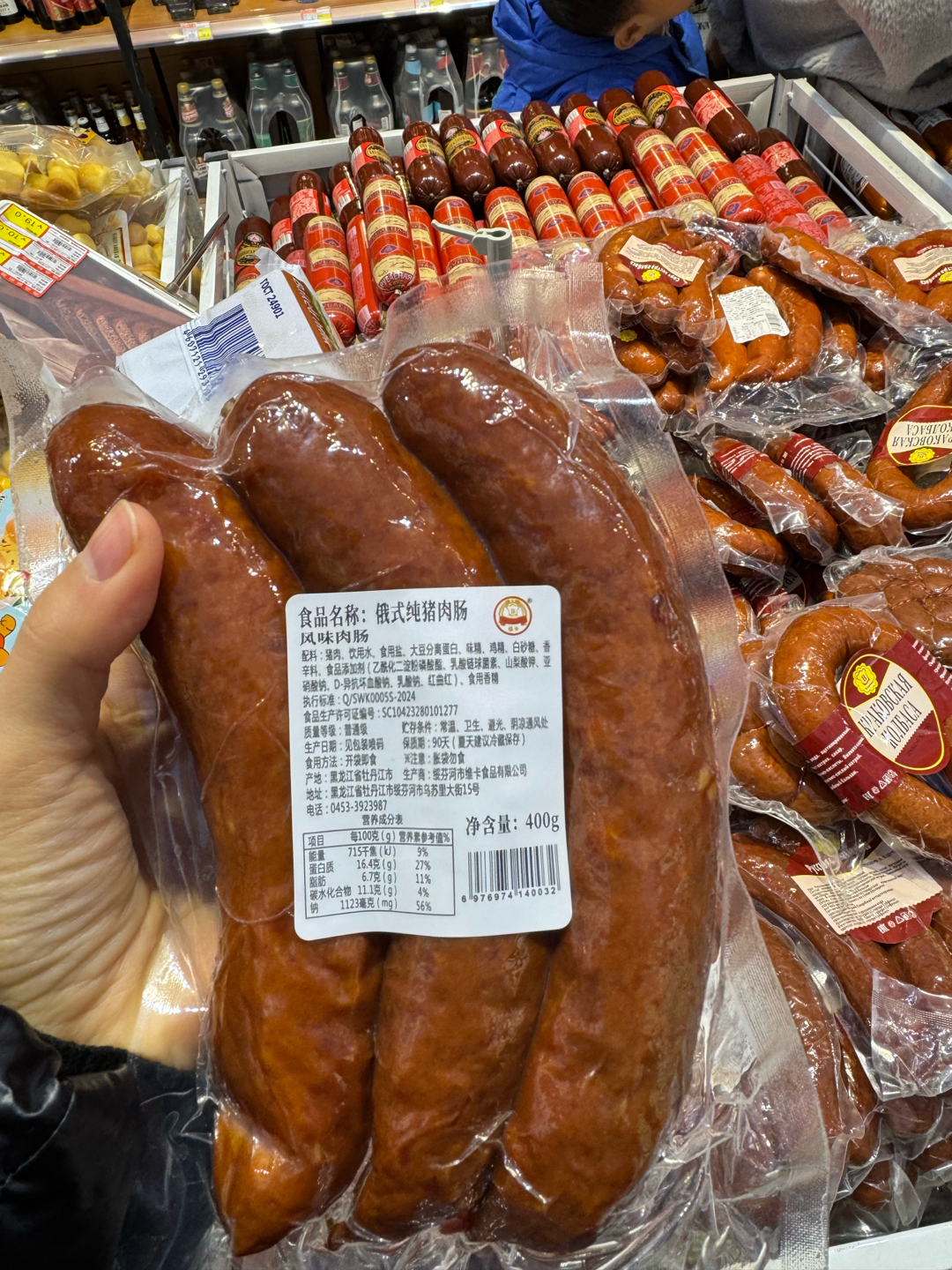
Russian-style pure pork sausage is produced in Mudanjiang City, Heilongjiang Province
Enterprise response:
Definitely not a product imported from Russia
If you look closely at the origins of these products, you can find that milk powder is produced in Qiqihar City, Heilongjiang Province, Russian-style pure pork sausage is produced in Mudanjiang City, Heilongjiang Province, and fruit oats are produced in Mudanjiang City, Heilongjiang Province… On the Internet, “Russian products are blooming everywhere” “The museum is all made in Northeast China” also triggered a wave of heated discussions.
The reporter called the service hotline of Suifenhe Omeno Food Co., Ltd., a fruit oatmeal manufacturer in the Russian Commodity Hall. When the reporter asked whether this product was imported or domestically produced, the operator made it clear that it was not a Russian imported product. “Although it is not imported, its raw materials may contain Russian ingredients.”
“Russia does not have beef tendons and camel milk.” An insider engaged in Sino-Russian foreign trade told reporters that some dealers may have adopted the model of purchasing Russian trademarks and producing them domestically.
In addition, the reporter also discovered instant coffee originating from Malaysia in a Russian product store.
Insiders:
National (commodity) pavilions need to be certified by the embassy
The reporter saw the words “Russian National Pavilion” on a milk powder.
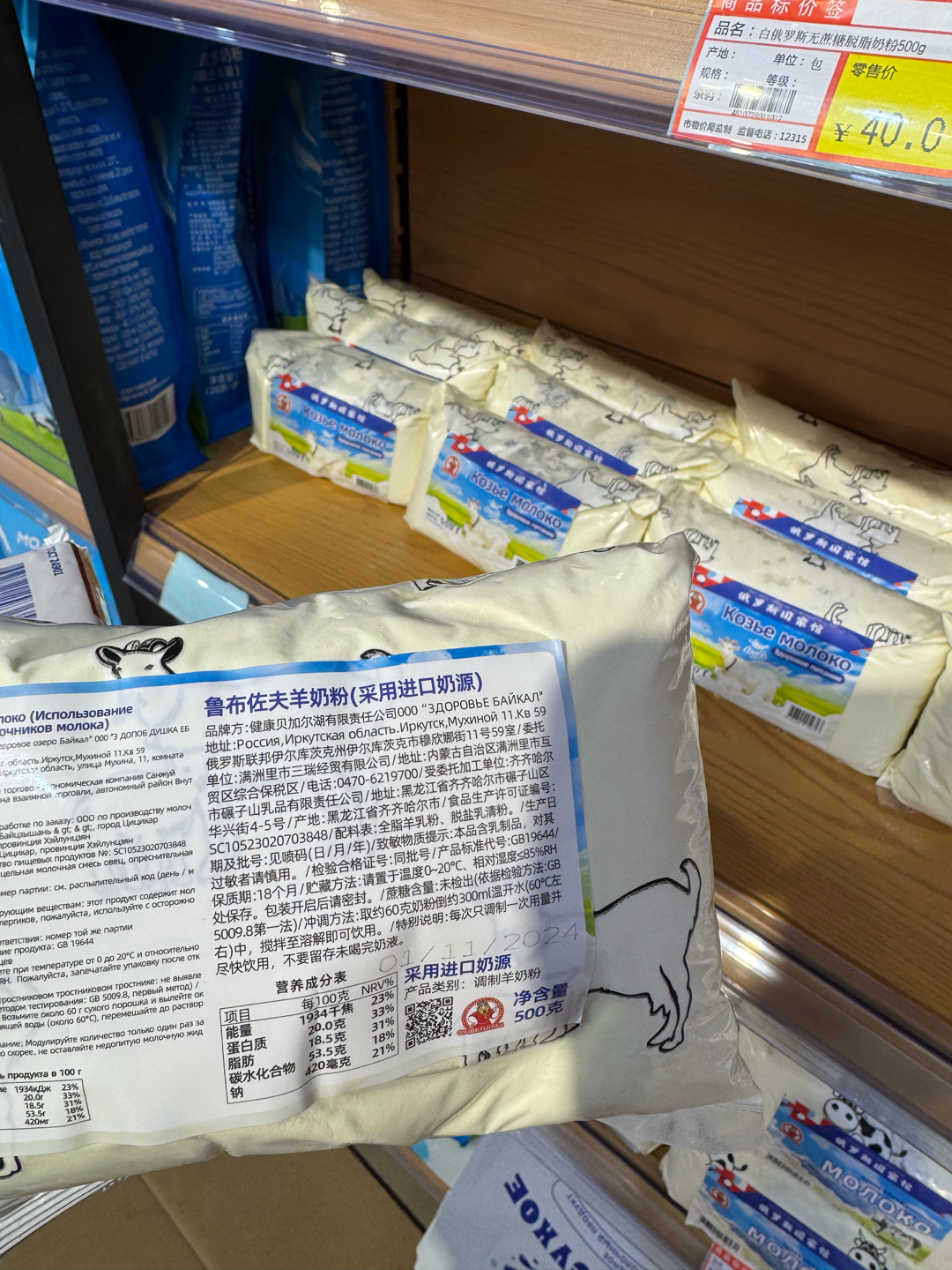
The outer packaging of the milk powder in the store has the words “Russian National Pavilion” on it, but its place of origin is Qiqihar City, Heilongjiang Province.
In the Chengdu International Railway Port, there are more than 30 national (commodity) pavilions. An industry insider told reporters that the national pavilion needs to be officially certified by the country’s embassy, and the commodity pavilion needs to be certified by the country’s business association.
For example, in the Chengdu International Railway Port, the Belarusian National Pavilion is certified by the Embassy of Belarus in China and the Ministry of Agriculture of Belarus. The Netherlands Pavilion is also officially authorized by the Netherlands. When the Nepal Pavilion was officially opened, the country’s ambassador to China came to the site to support the event. When the Azerbaijani National Brand Pavilion opened in Chengdu, the Ambassador Extraordinary and Plenipotentiary of Azerbaijan to China also attended and delivered a speech.
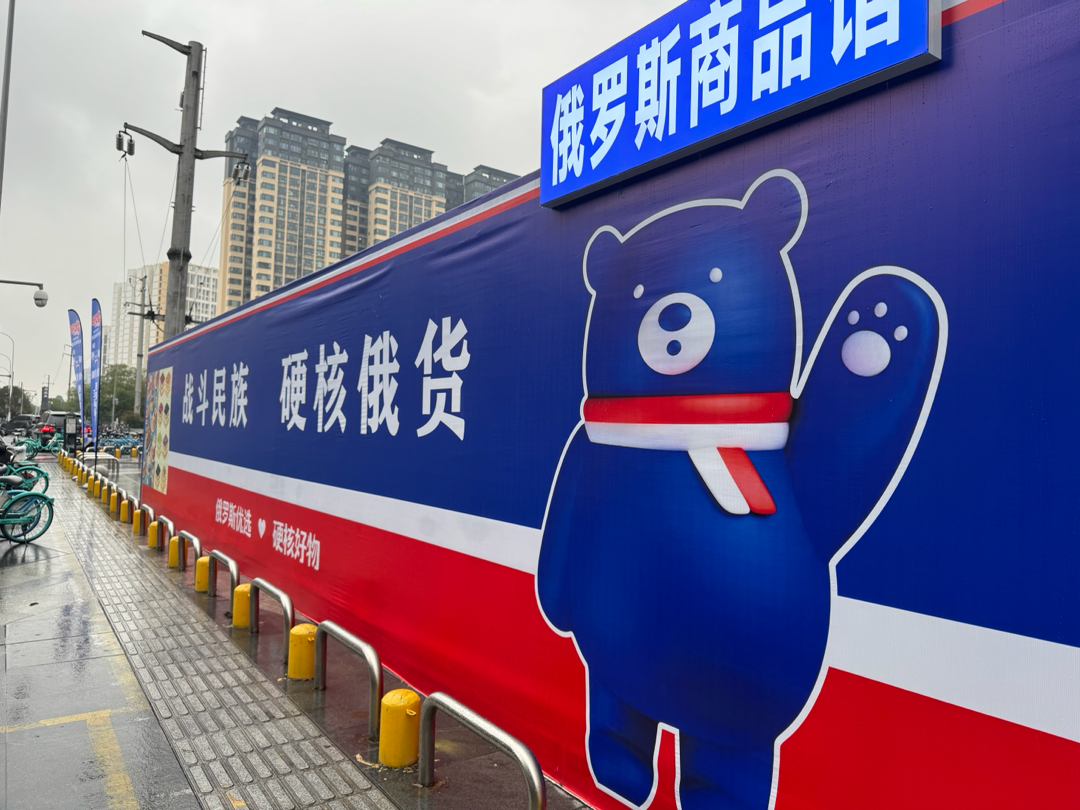
The Russian Commodity Hall opened outside the commercial square has signs such as “Fighting Nation”, “Hardcore Russian Products” and “Russia’s Best”.
Lawyer’s statement:
Merchants have “intentional” intentions to mislead consumers
Lawyer Duan Yanyang, a partner at Sichuan Mingju Law Firm, said that non-imported goods are sold under the banner of imported goods, which may constitute consumer fraud.
The Russian Commodity Hall prominently displays “high-quality Russian products” and “direct supply of goods from the source”. At the same time, the product names or trademarks are marked in Russian, as well as the on-site decoration style, background music, etc., which will make consumers think that the products in the store come from Misconceptions about Russian imports. If a merchant mixes imported goods with non-imported goods in the same area, there is an intention to mislead consumers.
According to the relevant provisions of the “Consumer Rights and Interests Protection Law of the People’s Republic of China”, merchants should provide true and accurate product information when selling products. If the goods are not imported, but the merchant deliberately promotes them as imported goods, this constitutes an act of deliberately spreading false information or concealing the truth. This behavior can lead to consumer misunderstandings and purchase decisions based on this misunderstanding. Therefore, there is a direct and clear causal relationship between this kind of fraudulent behavior by merchants and consumers’ wrong purchasing decisions.
If an operator engages in fraudulent behavior in providing goods or services, it shall increase compensation for the losses suffered by consumers according to their requirements. The amount of increased compensation shall be three times the price of the goods or services received by the consumers; if the law provides otherwise, in accordance with its provisions.

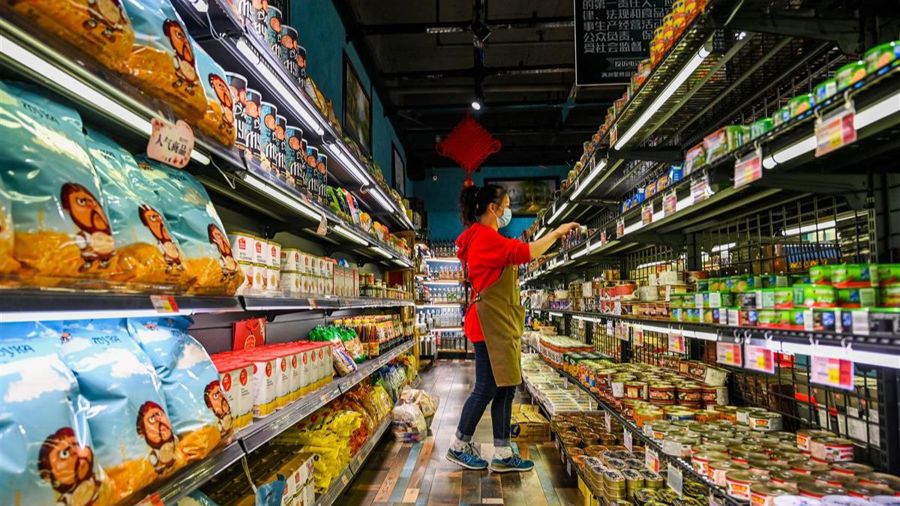


Recent Comments